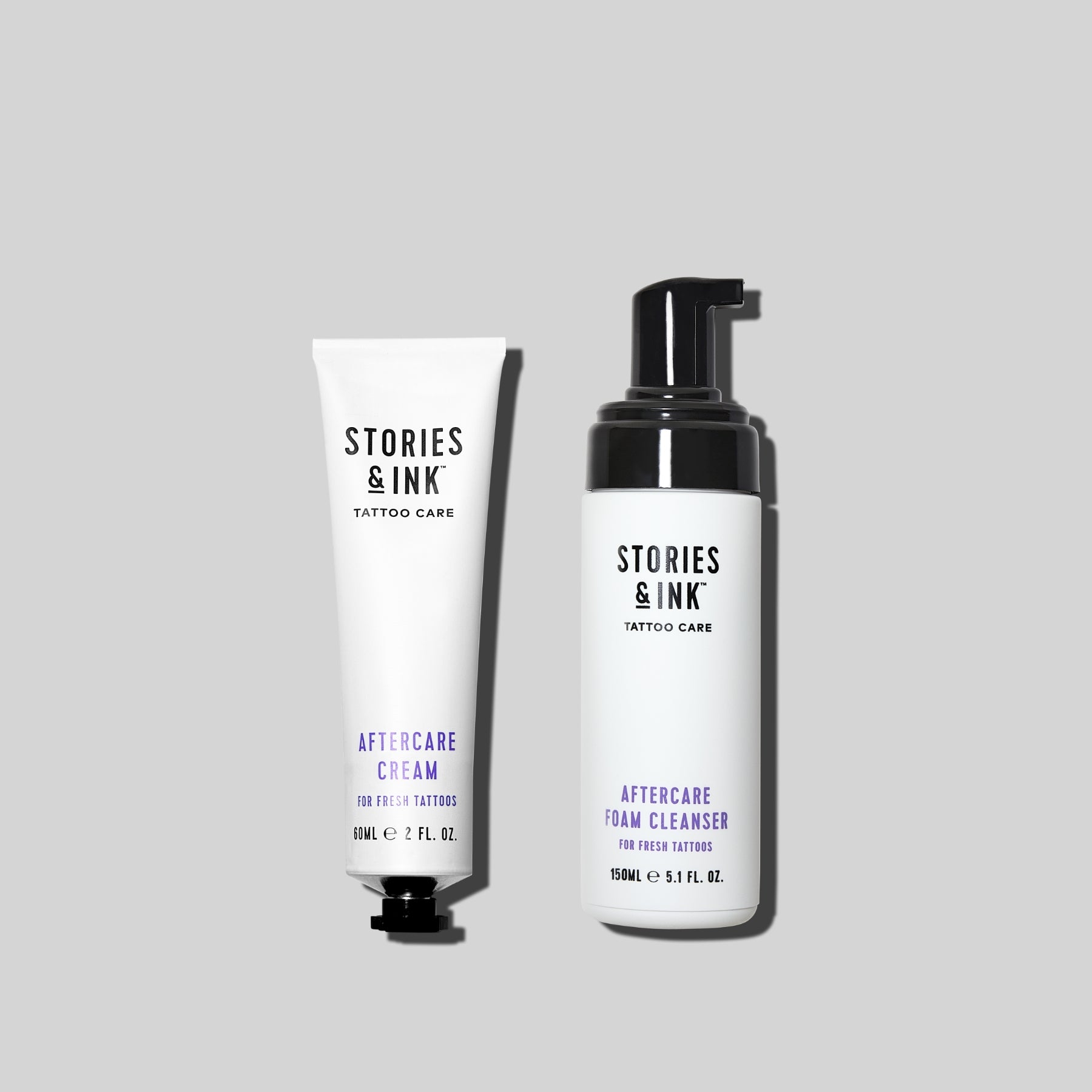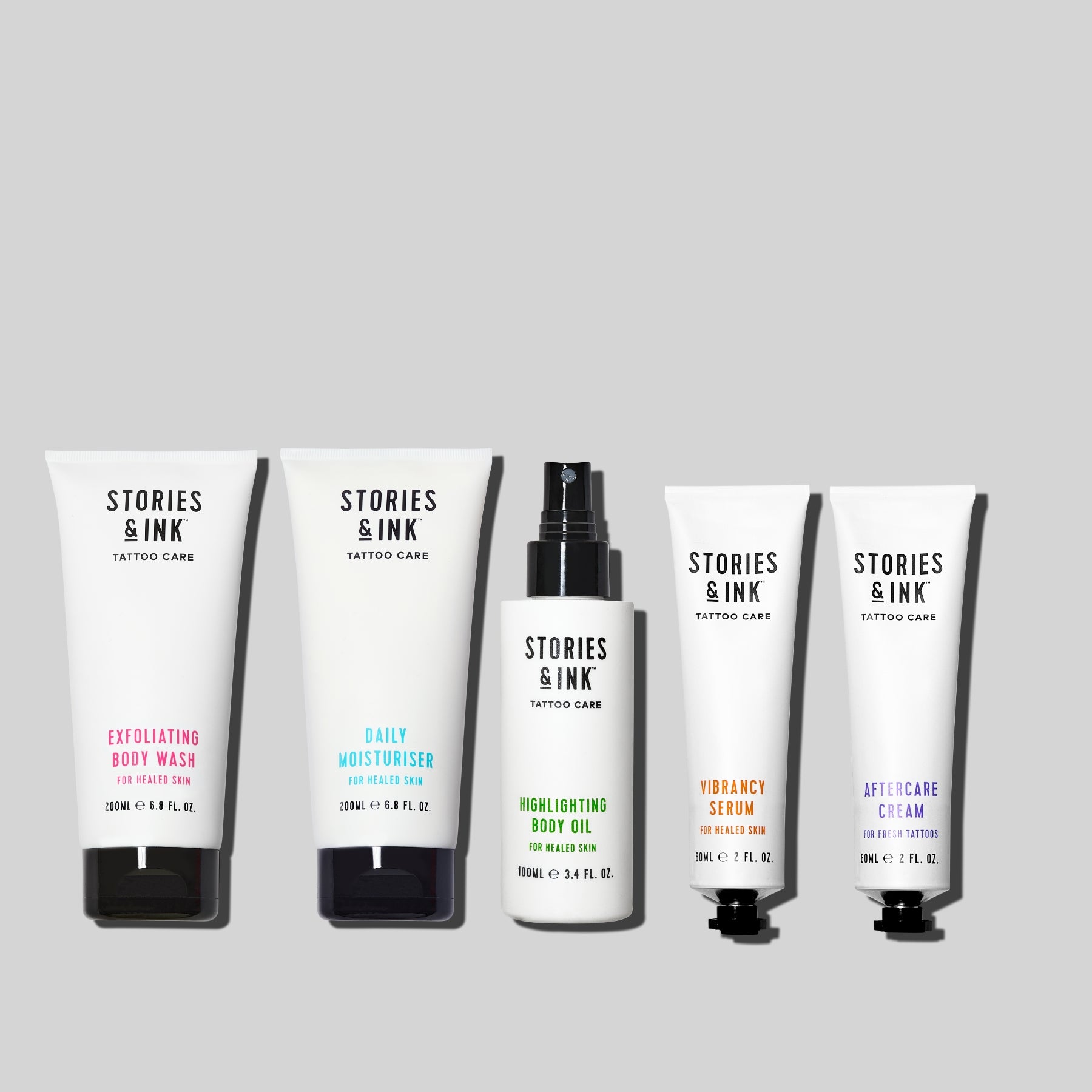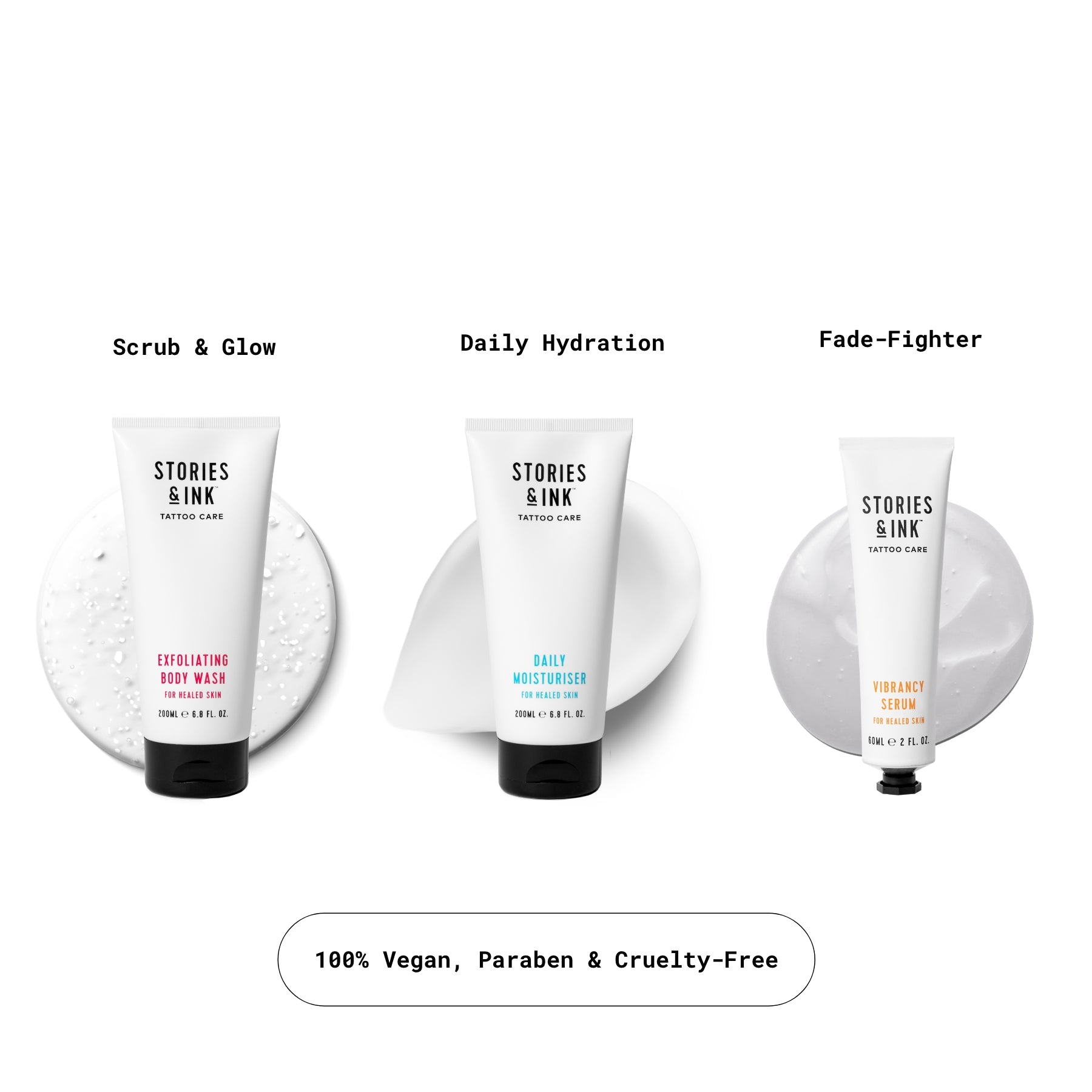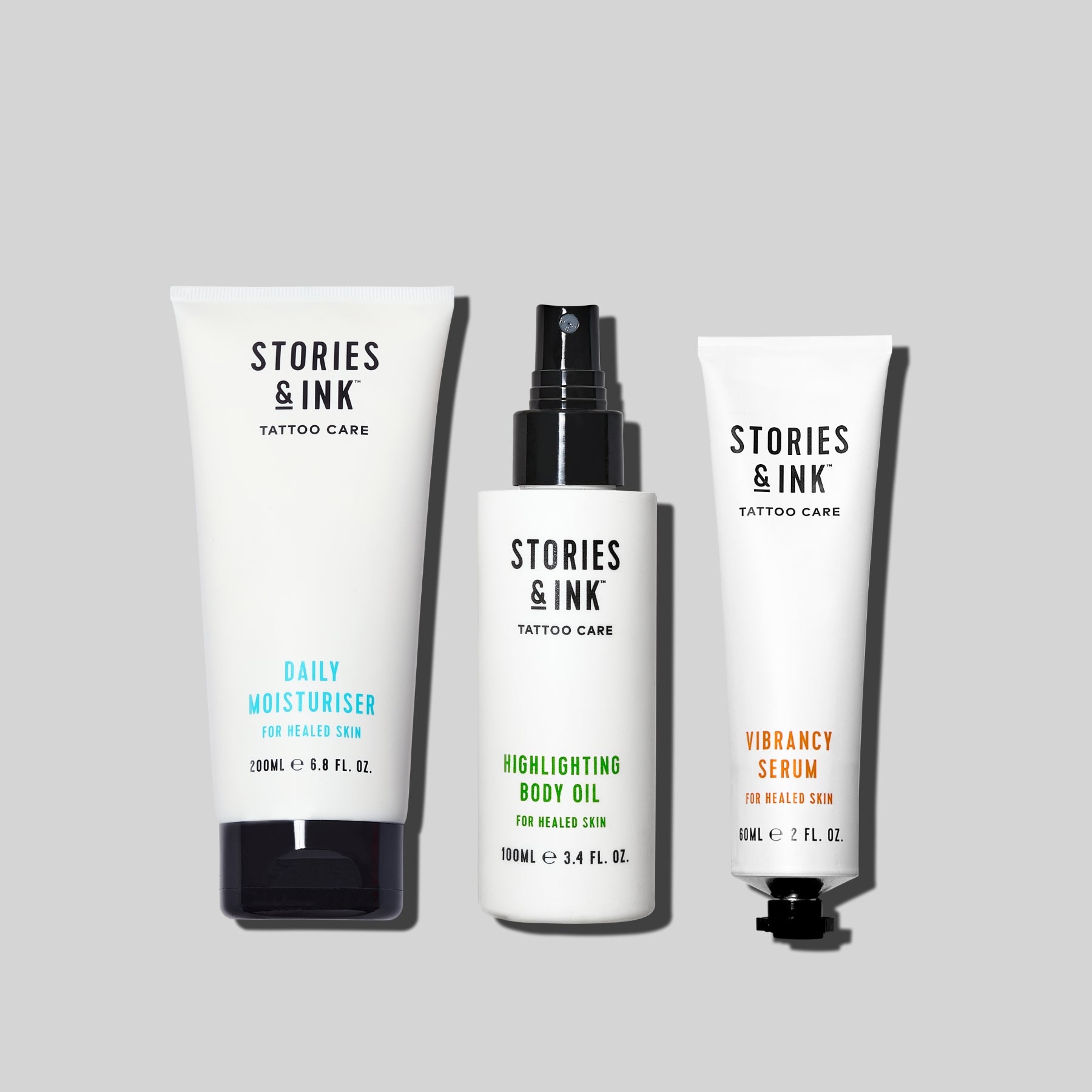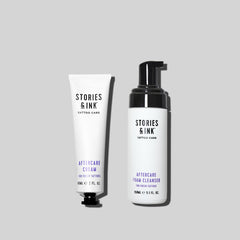
Just when you thought it was safe to go back in the water…
Allowing your tattoo proper time to heal is important for both the health and look of your new artwork. This is why top tattoo artists recommend you don’t go swimming after getting fresh ink.
But why don’t tats and water mix? And how long do you have to wait before taking a dip? Here’s all you need to know about new tattoos and swimming.
Can you swim with a new tattoo?
One of the biggest risks of swimming with a new tattoo is infection. Tattoos are essentially open wounds. And submerging this in water can expose it to potentially harmful bacteria.
Should these bacteria find their way into your bloodstream, they can lead to pretty nasty infections. So, it’s definitely something not to take lightly.
Can I swim in the sea with a new tattoo?
Open water, such as a lake or the sea, carries the greatest risk of a bacterial infection. Therefore it’s not recommended you swim in the sea until your new tattoo is completely healed.
If you’re ever tempted to take a plunge before your tattoo has healed (and please, don’t be), a quick Reddit search will reveal some horror stories that are bound to put you off!

When can you swim in chlorine after a tattoo?
Even chlorinated water in a swimming pool or hot tub can contain bacteria. After all, chlorine doesn’t kill all types of germs. And some pools are less chlorinated than others.
South Wales-based tattooists, Southern Ink Tattoo (@southerninktatoo), says, “We give three to four weeks’ time before getting in a pool or hot tub due to the chlorine.”
“[In a pool or hot tub] the temperature that the water is kept at is prone to [causing people] infection due to the bacteria that grows.”
Mix in other people, which Southern Ink Tattoo says can lead to “cross contamination” between bodies, and you can see why it’s not recommended.
Does salt water fade tattoos?
While infection is potentially the greatest worry when it comes to swimming, exposing your new tattoo to salt water (or chlorine for that matter) also carries other risks.
One of these is the risk of causing ink to leak from a fresh tattoo, making the colour less vibrant and causing your tattoo to fade prematurely.
Exposing new tattoos to the Sun can also cause fading, so it’s best not to show off your new tattoo at the beach for at least the first couple of weeks - bummer, we know.
What’s more, too much water can also dry out your skin. This may prolong the time it takes your tattoo to heal and increases the likelihood of unwanted itching, flaking, and scabbing.
What does chlorine do to tattoos?
Freshly tattooed skin can be pretty sensitive. This is why we, and top artists too, recommend following a strict tattoo aftercare routine.
Exposing your newly-tattooed skin to chlorine and other pool chemicals can irritate your newly-inked skin, causing inflation and some skin conditions, such as irritant contact dermatitis.
And while most reactions aren’t severe, they can be unpleasant - we’re talking major itching, oozing blisters and hives.
How to waterproof a tattoo for swimming
If you have to go swimming, you should make sure your tattoo is fully covered with a waterproof dressing.
Once you’re out of the water, it’s best to remove the dressing straight away and rinse the tattoo with warm, fresh water.
Next, dab or pat your skin dry with a clean towel, not rub it which can cause irritation to your new tattoo. And then you can apply your tattoo aftercare cream to the area as normal.
How Stories & Ink products help you get swimming more quickly

Desperate to get back in the water? We’re here to help! Stories & Ink offers the ultimate cleansing and healing routine for fresh tattoos and damaged skin.
Our gentle Aftercare Foam Cleanser and hydrating Aftercare Cream offer 100% natural, dermatologically-tested, fragrance-free, healing.
Keeping your fresh tattoos clean and free from bacteria, this duo can help your skin heal faster, meaning you should be able to get back in the water in no time at all.
*Article updated 2.7.25
